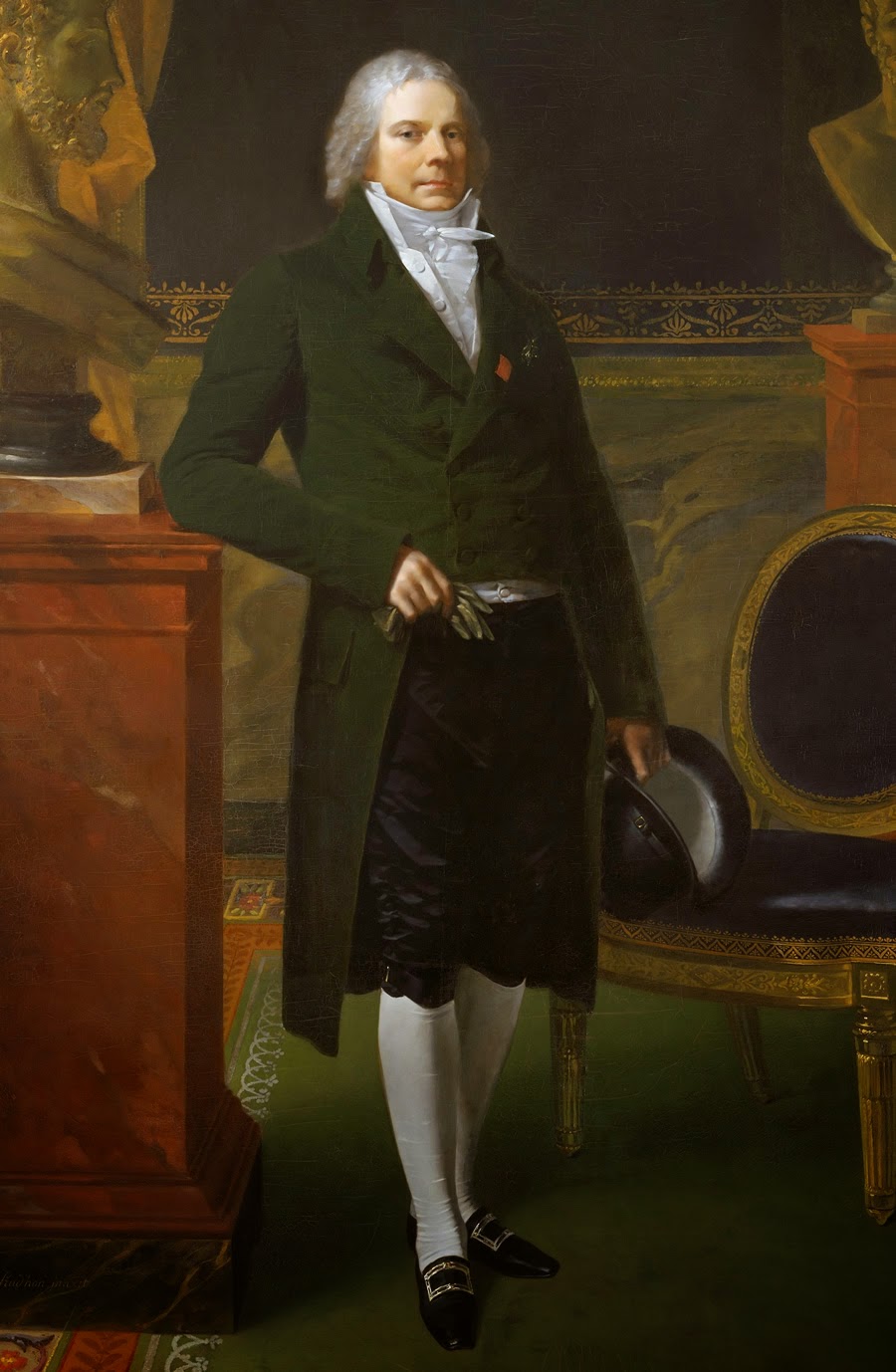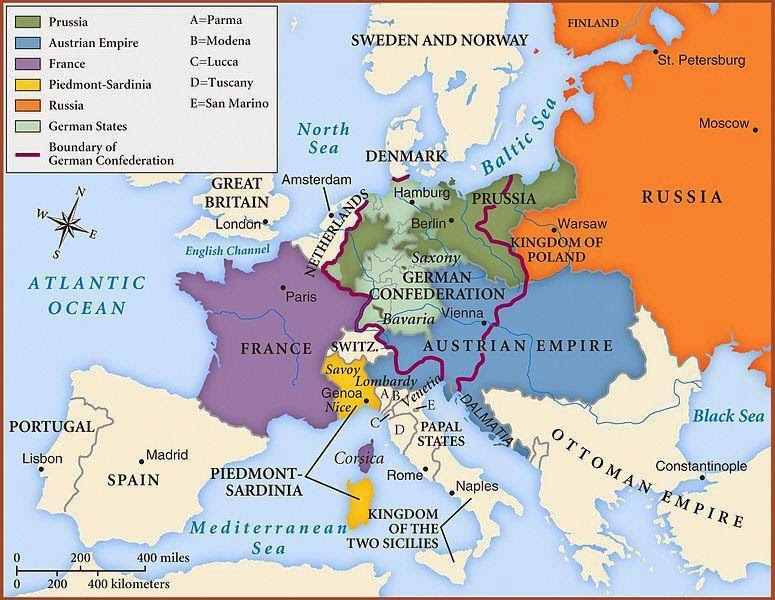 |
| Congress of Vienna |
The Congress of Vienna was held in the Austrian capital, where ambassadors from the major powers in Europe discussed what should happen to the continent at the end of the Napoleonic Wars. The conference was chaired by the Austrian statesman Prince Clemens von Metternich and took place from October 1, 1814, to June 9, 1815.
Strictly speaking, however, it was not a conference in the modern sense of the word, as the ambassadors never met in one place for these discussions, preferring to deal with other countries bilaterally, and then eventually come to a consensus.
The peace terms with France had already been decided in the Treaty of Paris signed on May 30, 1814. The discussions began with the initial defeat of Napoleon in 1814, and his subsequent exile to the island of Elba. However, he returned to France in March 1815 but was defeated at Waterloo on June 18—the congress having broken up nine days earlier.
  |
Clemens von Metternich, the Austrian foreign minister, presided, and much of the success of the congress was because of his diplomatic skills and his grasp of the situation. The United Kingdom was represented by Viscount Castlereagh, the foreign minister, and then by the duke of Wellington, although Wellington had to leave to take charge of the British forces in the southern Netherlands (modern-day Belgium), leading them at Waterloo.
Prince Karl August von Hardenberg, chancellor of Prussia, represented the Prussians, with Count Nesselrode, the Russian foreign minister officially representing his country, although Czar alexander I intervened regularly in proceedings.
 |
| Prince Clemens von Metternich |
The French were represented by Charles-Maurice de Talleyrand, the foreign minister of King Louis XVIII. The Spanish, the Portuguese, and the Swedes were also represented, as were the German states of Bavaria, Hanover, and Württemberg.
The victors in the Napoleonic Wars gained considerable territory, with the Russians being given the Duchy of Warsaw (Poland) and allowed to hold Finland, which they had annexed from Sweden in 1809. The German states were massively simplified, with smaller states merged and 39 states created under the presidency of the Austrian emperor.
Prussia was given land from the Duchy of Warsaw and also Saxony, Rhineland/Westphalia, and the port of Danzig. Austria regained the Tirol and Salzburg, the Illyrian coast (modern-day Croatia and Slovenia), and also Lombardy-Venetia. The British gains were around the world, with the United Kingdom retaining Cape Colony, South Africa, and also Tobago and Ceylon.
 |
| Charles-Maurice de Talleyrand |
However, it had to give up the Netherlands East Indies and Martinique. The House of Orange in the Netherlands was given control of modern-day Belgium and also the Grand Duchy of Luxembourg. Many other changes were made in Italy and Germany.
There was opposition to the Congress of Vienna from the Poles, who saw their brief independence under the French being extinguished. Poland was not to appear as an independent country again until the end of World War I in 1918. The Congress also ignored the concept of nationalism, and the emerging national identity.
However, it was the first concerted effort to sort out major European problems through discussion, with subsequent congresses being held to work out solutions to new or emerging problems. The result was what became known as the congress system, by which the major powers controlled many events in Europe up until 1830, and in many cases up to 1848.
 |
| The national boundaries within Europe are set by the Congress of Vienna, 1815. |
Metternich emerged as the greatest statesmen in Europe at the time; in recent times, Henry Kissinger studied the congress system prior to his entry into U.S. politics, with him drawing parallels and differences between what was possible in the discussions such as the Congress of Vienna and what could be envisaged during the 1960s and 1970s. In many ways, the congress system envisaged international discussions that would occur in the 20th century under the aegis of the League of Nations and later the United Nations.